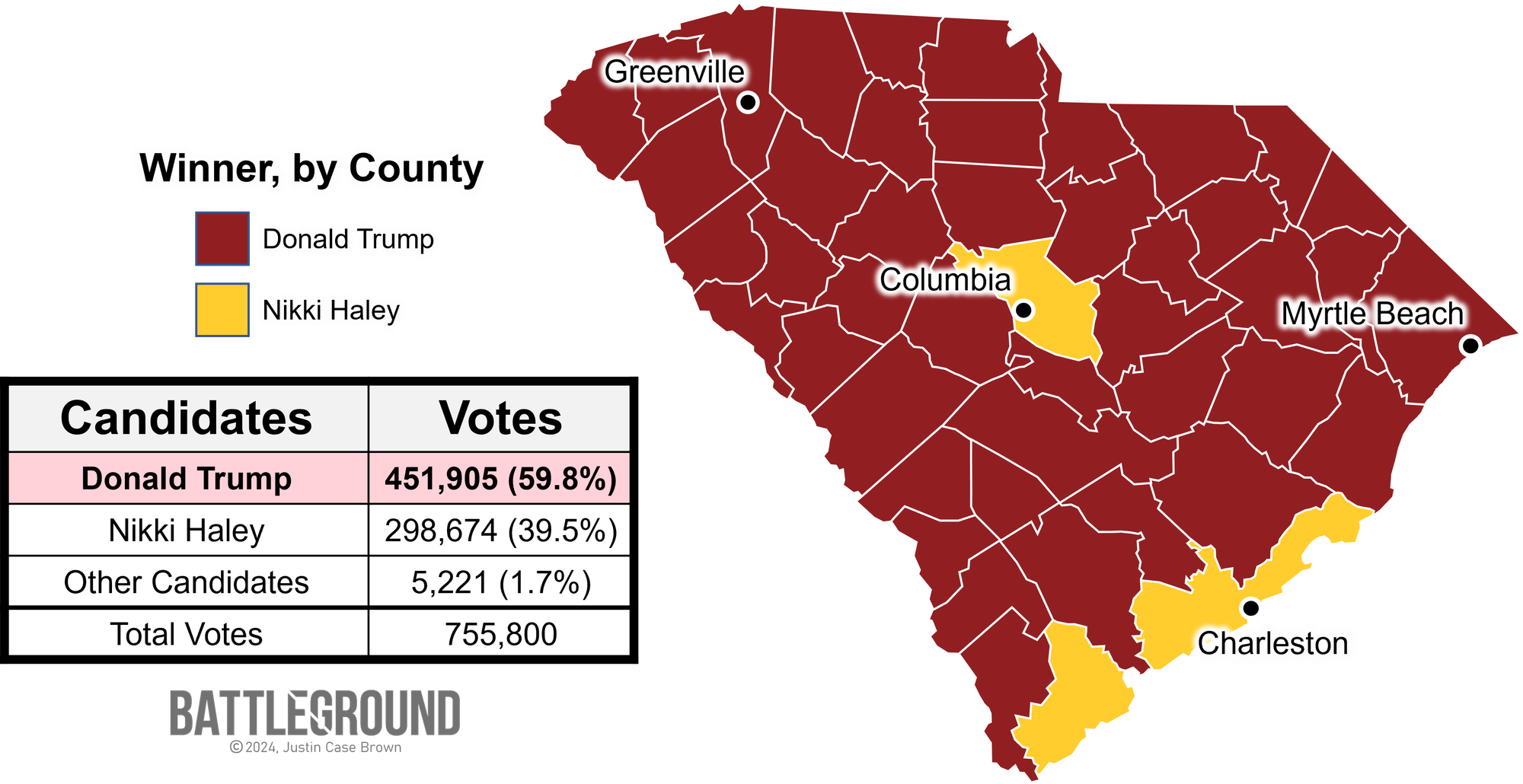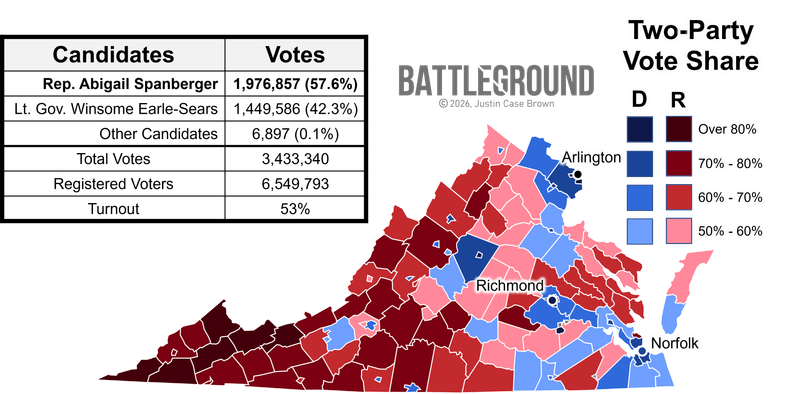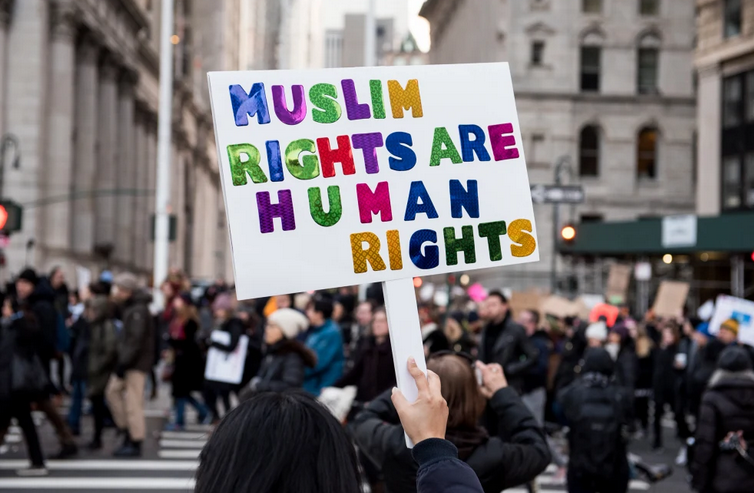No, Trump Isn't Suddenly Popular With Black Voters
Donald Trump notched a primary win in South Carolina, handing Nikki Haley an embarrassing loss in her home state. Despite recent comments from the candidate, Trump did not receive substantial support from Black voters.
Topline Takeaways
- Donald Trump notched a primary win in South Carolina, handing Nikki Haley an embarrassing loss in her home state.
- Despite recent comments from the candidate, Donald Trump did not receive substantial support from Black voters in South Carolina.
- Calls are continuing to grow for Haley to suspend her campaign, especially as polling for upcoming primaries isn't showing a shift in her favor.

No 'Home-Field Advantage' for Haley
Despite serving as the state's governor for two full terms, Nikki Haley lost South Carolina's Republican presidential primary to former president Donald Trump by a wide margin. She managed to capture just under 40% of primary voters (the final count has her at 39.5%, just close enough to round up.) Haley seemed prepared for the loss as she was quick to highlight the optimistic view of her performance.
"I’m an accountant. I know 40 percent is not 50 percent. But I also know 40 percent is not some tiny group. There are huge numbers of voters in our Republican primaries who are saying they want an alternative.”
-Former Gov. Nikki Haley
Questions abound about why Haley failed to breakthrough in her home state, especially since she was a popular governor upon leaving office in 2017. She left office with an approval rating of 60% among South Carolina voters, making her the 13th most popular governor in the nation at the time. While some claim that Haley failed to maintain crucial relationships with state politicians, Haley's failure is less about her shortcomings and more about Trump's strength among the Republican base.
"[The primary results] in no way diminish the achievements — and personal popularity — of a transformational governor in Nikki Haley... Tonight’s results acknowledge Donald Trump’s broad, deep and potentially insurmountable support among Republicans."
-Rob Godfrey, Haley’s former deputy chief of staff as governor
No, Black Voters Aren't Clamoring for Trump
"The mug shot, we’ve all seen the mug shot, and you know who embraced it more than anybody else? The Black population. It’s incredible. You see Black people walking around with my mug shot, you know they do shirts... I think that’s why the Black people are so much on my side now because they see what’s happening to me happens to them."
-Former Pres. Donald Trump
Trump delivered the quote shown above during the weekend of the South Carolina primary and the primary provides us with data to show how incorrect this (racist) assumption truly is. To start, the vast majority (78%) of South Carolina's Black population supports the Democratic party. Only a measly 7% support Republicans and the rest (15%) identify as unaffiliated voters. Black reluctance toward Republicans was shown in exit polling as Black voters only made up 8% of total ballots cast in this year's Republican primary (despite making up 26% of the total state population). A reminder: South Carolina uses open primaries, meaning Democratic voters can participate in the Republican primary as long as they do not cast a vote in the Democratic primary. Therefore, if it were truly the case that Black South Carolinians were enthusiastic about Trump we would have seen a substantial uptick in Black participation in this primary to support him. But that didn't happen because the state's Black voters are not enthusiastic about Trump.
Taking it a level deeper: The support that Trump did receive across South Carolina's counties has almost 0 correlation with the distribution of the state's Black population. If it were true that "Black people are so much on [Trump's] side" we would expect to see strong support for him in counties with high numbers of Black residents. This also did not happen. The 'r-value' for Trump's % win by county compared to the total Black population by county is a measly 0.15; incredibly close to a 0 which means that the two datasets are not correlated with one another.
Leftover Links









